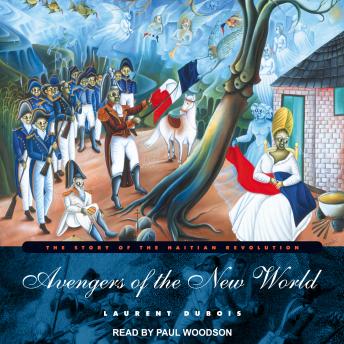
Whether examining issues of political upheaval, the environment, or modernization, The Haiti Reader provides an unparalleled look at Haiti's history, culture, and politics.

military occupation and the Duvalier dictatorship, as well as overlooked periods such as the decades immediately following Haiti's “second independence” in 1934. Spanning the centuries between precontact indigenous Haiti and the aftermath of the 2010 earthquake, the Reader covers widely known episodes in Haiti's history, such as the U.S. Its dozens of selections-most of which appear here in English for the first time-are representative of Haiti's scholarly, literary, religious, visual, musical, and political cultures, and range from poems, novels, and political tracts to essays, legislation, songs, and folk tales. He is a specialist in the history and culture of France and the Caribbean, focusing mainly on Haiti. The Haiti Reader introduces readers to Haiti's dynamic history and culture from the viewpoint of Haitians from all walks of life. Laurent Dubois’ compelling book, Haiti the Aftershocks of History, traces the history of Haiti from pre-slavery days through the revolution, and the following eras up to this century. He is also the author of Avengers of the New World: The Story of the Haitian Revolution, which was a Christian Science Monitor Noteworthy Book of 2004 and a Los Angeles Times Best Book of 2004, Les esclaves de la République: l'histoire oubliée de la première emancipation, 1787–1794, and Haiti: The Aftershocks of History.While Haiti established the second independent nation in the Western Hemisphere and was the first black country to gain independence from European colonizers, its history is not well known in the Anglophone world. His book A Colony of Citizens: Revolution and Slave Emancipation in the French Caribbean, 1787–1804 won the American Historical Association Prize in Atlantic History and the John Edwin Fagg Award. Columbus landed on Hispaniola (the island on which Haiti sits) in 1492, and established there the first European colony in the New World. University of Michigan) is associate professor of history at Michigan State University. Haiti is an ideal setting for students to study the conquest of the Americas, as well as early modern colonialism and Atlantic slavery.

He is also the author of Avengers of the New World: The Story of the Haitian Revolution, which was a Christian Science Monitor Noteworthy Book of 2004 and a Los Angeles Times Best Book of 2004, Les esclaves de la République: l'histoire oubliée de la première emancipation, 1787–1794, and Haiti: The Aftershocks of History. University of Michigan) is associate professor of history at Michigan State University.


 0 kommentar(er)
0 kommentar(er)
